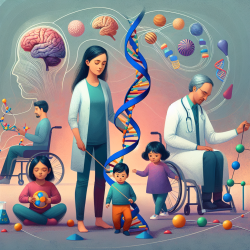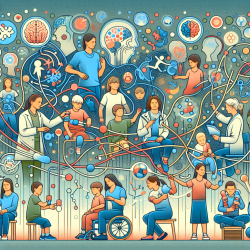Understanding HDAC3 Variants in Neurodevelopmental Disorders
Recent research published in the American Journal of Human Genetics has unveiled the significant role of de novo missense variants in HDAC3, a crucial epigenetic modulator, in contributing to a spectrum of neurodevelopmental disorders. This study, titled "De novo missense variants in HDAC3 leading to epigenetic machinery dysfunction are associated with a variable neurodevelopmental disorder," provides valuable insights into the molecular mechanisms underlying these disorders and offers potential pathways for therapeutic interventions.
Key Findings and Implications for Practitioners
The study identified six individuals with heterozygous de novo variants in HDAC3, all of which are located in evolutionarily conserved sites and confirmed as de novo. These variants were associated with a range of clinical presentations, including intellectual disability, developmental delay, epilepsy, and musculoskeletal abnormalities. The research highlights the complex role of HDAC3 in histone deacetylase activity, multi-protein complex interactions, and nuclear localization, which are essential for proper physiological functions.
Practical Applications for Speech-Language Pathologists
For practitioners in the field of speech-language pathology, understanding the implications of these findings can enhance therapeutic strategies and outcomes for children with neurodevelopmental disorders. Here are some practical applications:
- Personalized Therapy Plans: Recognize the diverse clinical presentations associated with HDAC3 variants and tailor therapy plans to address specific needs, such as speech and language delays, cognitive impairments, and motor coordination issues.
- Collaborative Care: Work closely with geneticists and neurologists to understand the genetic underpinnings of a child's condition, which can inform more effective intervention strategies.
- Family Education: Educate families about the genetic aspects of their child's disorder and the importance of early intervention in mitigating developmental challenges.
Encouraging Further Research
While this study provides significant insights, it also opens avenues for further research. Practitioners are encouraged to stay informed about ongoing research in the field of epigenetics and neurodevelopmental disorders. Collaborating with researchers can help bridge the gap between clinical practice and scientific discovery, ultimately improving outcomes for children.
To read the original research paper, please follow this link: De novo missense variants in HDAC3 leading to epigenetic machinery dysfunction are associated with a variable neurodevelopmental disorder.










